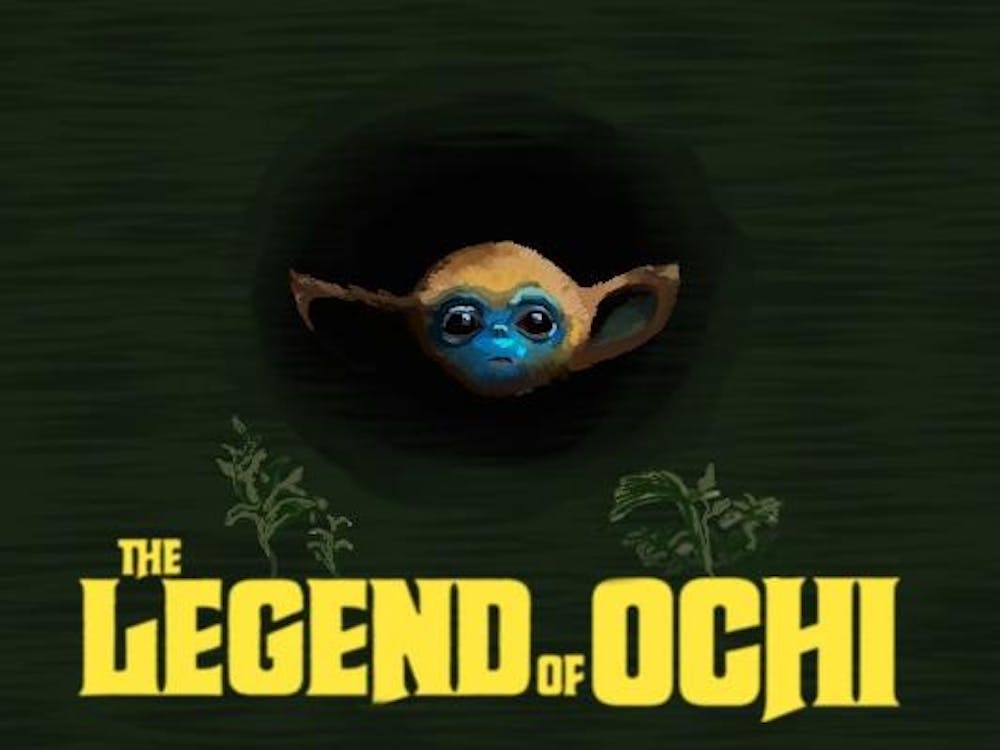Steve Martin is at his best when he is a loving, unconventional father. “Planes, Trains and Automobiles,” “Father of the Bride” and “Cheaper by the Dozen” are all fantastic examples of his loving charisma and sense of warmth. Each of those films warrant their own forgotten films review. However, “Parenthood” is an outlier that deserves particular praise.
Martin plays Gil Buckman, a supposedly conventional family man who just tries to do his best when raising his family and keeping it all together. He will do whatever it takes for his family, no matter how much of a fool it makes him look in public.
Martin’s performance in “Parenthood” is one of his best because of his ability to become an honest, emotional and relatable family man. While some of his roles have been more comedic and some more dramatic, this role strikes the right balance, one which makes the story feel more realistic to the audience.
As a father, Gil doesn't understand why his family seems to be falling apart. He tries a variety of measures to change that, but he eventually blames himself. While his family is experiencing many trials, the most piercing is his son’s developing emotional problems. Being portrayed by Martin, Gil is humazined even more and studies the complexities of realizing that his own son suffers from problems that may be tied to his own.
Aside from Martin, the film is comprised of one of the best ensemble cast for family dramedies, encompassing both stars of the late 1980s and fledgling actors with whom audiences are much more acquainted with today. Veterans like Mary Steenburgen, Dianne Wiest and Jason Robards assist in leading the family as the parents. Conversely, Martha Plimpton, Keanu Reeves and Joaquin Phoenix play the younger members of the Buckman family.
Wiest’s performance is particularly a standout as Helen Buckman, Gil’s sister. Few performances take the spotlight away from Martin in his films, but Wiest does so tremendously. Almost every scene that she is in tackles hard, relatable topics — and with comedic delivery.
Wiest’s character is a single mother and has a strained relationship with both her kids. One is a teenage daughter who marries a high school sweetheart and is unprepared for the realities associated with such a decision. The other is her younger son who is quiet and reserved, but has a desire to know his father who abandoned the family.
Wiest’s acting in “Parenthood” earned her an Academy Award nomination for Best Supporting Actress at the 1990 Oscars. It is rare to see a comedic performance nominated for this type of award, yet Wiest made her mark. For perspective, the most recent example of a comedic performance being nominated for an Oscar was Melissa McCarthy in 2011’s “Bridesmaids.”
This film is timeless for the countless hot-topic problems addressed. Issues tackled within the film include children with special needs, teen pregnancy, marriage counseling and child abandonment. None of these issues really change over time, and this film tells a story of how some may tackle those problems. The Buckmans feel like one's own family. Viewers can relate each member of their own family to a Buckman.
It is a perfect balance of drama and comedy that will make one understand every facet of being a parent. People remember the times that brought them all the joy in the world. People also remember the moments that tear them down to the rawest and most vulnerable. But, people seem to forget to try and remember the moments in between. Life is nuanced, and “Parenthood” tries to remind its audience of that.
“Parenthood” also wants the viewers to know that the title concept is not easy. Mistakes are made, and parents can only do so much for their children. At some point, parents have to learn that their children will become parents themselves and be beyond their reach.
Many readers are likely thinking of the 2010 NBC series of the same name, which aired for six seasons and starred Craig T. Nelson, Lauren Graham, Dax Shepard and Monica Potter. The “Parenthood” series was nominated for numerous awards and was consistent in acquiring millions of viewers.
While the television show was a brilliant adaptation and a respectable expansion of the world seen in the film, it's unfortunate that the film has not stood the test of time. The film has a Rotten Tomatoes score of 93 percent with perfect ensemble casting and a valuable story. Most importantly, the film has a pure heart that everyone should experience.
As one of the characters states towards the end of the film, a roller coaster makes one feel so frightened, so scared, so excited and so thrilled all at the same time. Some don’t like the idea of the roller coaster, but they don’t have a choice — like it or not, everyone is riding.
Forgotten Films is part of a series in which the author breaks down films that have lost significance in the pop culture landscape, but still deserve attention due to their history, impact and lasting importance. This biweekly column is spoiler-free.







